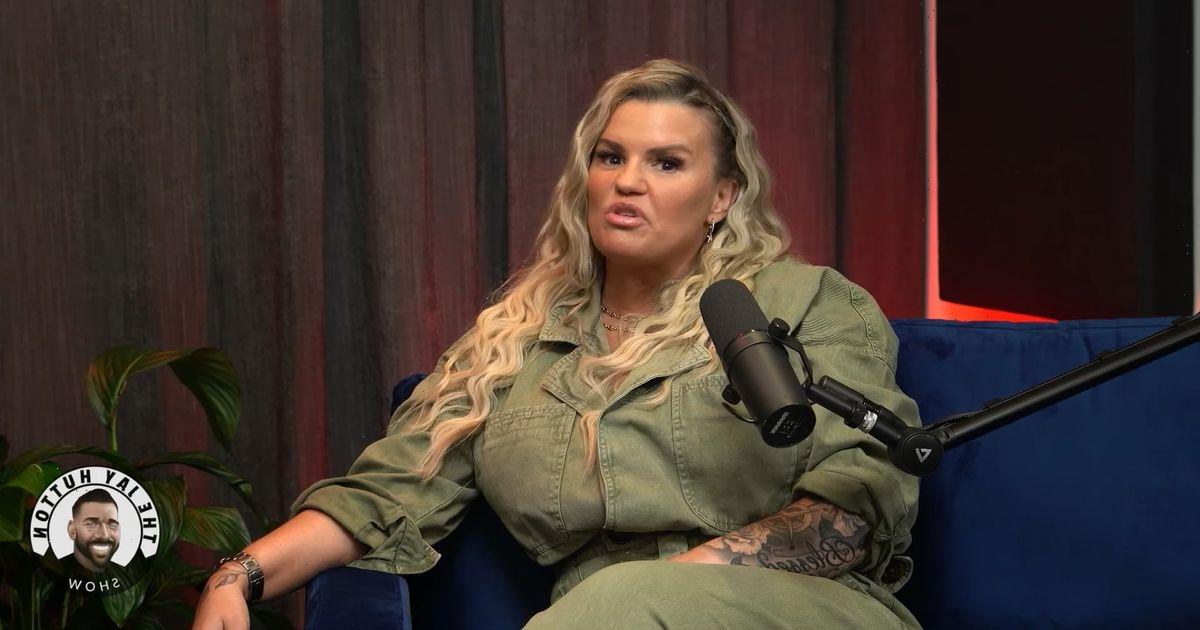As Boromir might have said in some deeply unorthodox, parallel universe adaptation of Lord of the Rings: One does not simply walk into a Bond movie. For most artists, recording a signature song for a feature film is a task performed once the contract is signed. Not so on Bond, with its long history of iconic musical credit sequences. On a Bond movie, artists line up for a shot at winning the gig, writing and recording songs on spec in the hopes they’ll get picked.
No lesser musician than Johnny Cash, for instance, recorded a song for Thunderball, which was nixed in favor of Tom Jones, who also beat Dionne Warwick to the gig. Alice Cooper’s “The Man with the Golden Gun” lost out to Lulu’s song of the same name. Blondie had to step aside for Sheena Easton on For Your Eyes Only. The Pet Shop Boys, Radiohead, Muse and Pulp have all recorded songs that didn’t make the cut. And those are the ones we know about. Some get released anyway, others languish on some dusty record cabinet in the sky, never to be heard from again.
All of which to say, earning a spot on that coveted playlist of official Bond themes is not just highly prized, it’s highly contested, and it has been as long as Ian Fleming’s superspy has been a big-screen staple.
So, when Hans Zimmer landed the gig to compose the soundtrack for No Time to Die, the choice fell to him to pick the song that would best fit his score. “As soon as I heard this song, I really tried to listen to the others, but… I thought, to have such elegance and such beauty in a Bond movie could be just fantastic.”
The song that floored Zimmer was, of course, a ballad by Billie Eilish and her brother Finneas O’Connell. It was the song that would become ubiquitous on radio stations and Spotify playlists long before No Time to Die ever found a pandemic-light window in which to premiere.
Indeed, “No Time to Die” took on a new life as an oddly apt elegy to lead us through the early days of the pandemic. Divorced from the bombastic action adventure for which it was intended, the song had added resonance that meant, when it was finally heard over the credits for No Time to Die, it was like reuniting with an old friend.
At the time Eilish and O’Connell wrote the track, of course, none of this was in the cards. Instead, “We kind of threw our hat in the ring,” O’Connell says simply and rather modestly. “We just told them how excited we were by the idea of writing a Bond song.”
“And it was actually kind of fun to write,” Eilish says. “Sometimes writing songs is a horrible experience. But on this… I remember, I was reading the lyrics after, trying to figure out whether it was me or Finneas who wrote this line or that line, but you just kind of forget. You totally forget because, really, we wrote it together. And it was fun.”
“I was surprised by that, honestly,” adds O’Connell. “We felt so beholden to writing a great Bond theme. The best setup is to write without any expectations. Really, when you write with no expectations, that’s how you get a song like ‘Bad Guy’. You go, ‘Let’s try this, try that, mess around with it.’ With ‘No Time to Die’, we were like, ‘Oh God, we have to write a great song.’ But we became aware how weird it was that we were having just a wonderful time writing it.”
You don’t deliver a franchise centered around the world’s most famous spy without strict secrecy, though, and Eilish and O’Connell had only the film’s pre-credit sequence, in script form, to guide their initial writing process. It was from this, Eilish says, that she and O’Connell weaved a narrative, recognizing that the best Bond themes had followed a similar pattern, casting the singers as characters who might have crossed paths with Bond or the films’ other characters.
“It feels like it has to make sense in the context of the movie,” Eilish says. “I don’t really want to see a Bond movie where the main title song doesn’t have anything to do with the film. That’s going to be super unsatisfying. And what was cool about writing a song from the perspective of the movie itself was that we love writing characters and narratives into our music, and I feel the music we’re most proud of is the music where we’ve come up with a plot for the song ahead of writing it.”
Indeed, what has made Eilish’s music so definitive for a generation of fans has been the ease with which she has worn her triumphs and tragedies in the lyrics she has composed with her brother, relating her audience to her their own struggles in the world. And so, she says, the personal had to find its place here too.
“I wrote the song from the perspective of somebody I had hurt,” Eilish explains. “It was a really interesting situation for me, because honestly, we never think about how our own actions are perceived from other people’s point of view. Or, we do, but we don’t do it enough. It taught me a lot, to put myself in somebody else’s shoes, and it was fun, too, because you can create a character and write about something other than yourself. You don’t have to expose yourself; you don’t have to be telling your truth.”
“But it is truth,” Zimmer interjects, and Eilish agrees. “It’s a different path to truth.”
Once Zimmer heard their demo, he insisted they be given the full script, and the trio worked to refine the song further. They all struggle to remember what, specifically, changed—such being the organic nature of the collaboration—but Zimmer says he wanted to find the “colors” of the piece. “When I composed the music for The Lion King, I was composing with only black and white images, and there’s a chord in the score that clashes with the color so badly,” he says. “It sounds bad to admit it, but I had to do the remake just so that I could sort this one chord out, because it had been bugging me since 1994. I’m the only person in the world who notices.”
The key, they say, was to listen. To listen to the music, to each other, to themselves. “You can actually hear it in this song, how Billie and Finneas support each other,” Zimmer says. “It isn’t about how well you play; it’s about how well you listen.”
Finneas says that’s something he and Eilish are always working on. “We have a song called ‘When the Party’s Over’. We played that live first, halfway out of naivety, but it ended up being advantageous. We played it for about a year before we put it out. And the whole song hinges on these moments we found when we played it live, where Billie’s vocal comes in. It was because we were both listening to the gravity that was there, letting it build.”
Zimmer asks O’Connell how they deal with listening when it comes to the notes they must inevitably receive from music executives, citing his own dalliances with movie executives when they failed to understand his choices. “We’re good at pushing back at that,” Zimmer notes, “But we need those people around to protect us.”
“Yeah, that’s one of the things we’ve been successful in fighting off in Billie’s solo career,” says O’Connell. “We have a very insular team, and we don’t play anything until it’s almost entirely done. I sometimes think people at record labels feel that they’re paid to give feedback. The reason we hold off playing it until the very end is we go, ‘Here it is, and we’re done unless you have a fantastic idea.’ We’re always fighting the culture of, ‘How can you make yourself feel smart today by giving us a task?’”
On Bond, they say, producers Barbara Broccoli and Michael G. Wilson are the ones serving as the vanguard in the fight to protect their artists from that kind of interference. “It feels incredibly intimate,” says Zimmer. “They’re at every session, but they’re brilliant at hiding what an enormous machine it is to make a Bond movie.”
So, then, as they make music that tackles their own personal truths and insecurities, even as filtered through narrative, or movies, or character creations, is the process therapeutic? “No!” exclaims Eilish. “I feel like people always say making music is therapeutic, and I genuinely don’t agree. I don’t really enjoy it. I only enjoy it afterwards, when I play it. I’m sure both of them do.”
“I find it therapeutic,” confirms O’Connell.
“Oh yeah,” says Zimmer.
“See? I don’t,” insists Eilish. “I love listening to what I’ve made. I love having made music. I love performing it and singing it and dancing to it. The process for me is far from therapeutic. The difference is, they’re nerds for the process, and I’m not.”
“Nerds!” laughs O’Connell. “No, but it is therapeutic. I’ve been to stints of therapy in my life, and I think the only reason I haven’t been to more is because of songwriting.”
“I think the only reason I survived is because I got to play the piano,” says Zimmer. “I wouldn’t have cared if nobody listened at all. I didn’t make this career. Nobody understands this, but I think you two will. People ask me, ‘Bond?’ And I go, ‘Yes.’ Then I’m like, ‘I have no idea how to do this, and it’s really scary because I don’t want to ruin it for everybody.’”
“It’s so true,” says Eilish. “A huge part of this crazy life that we now live is being terrified to do something, but knowing that you just gotta say, ‘Yes’. Not because other people are telling you to but because you know that it’s right. ‘Will you write a Bond song?’ ‘Hell yeah, we will!’ But, fuck, now we’ve got to do the Bond song, and how do you even start?”
“And when are they going to find out I’m a fraud?” adds Zimmer, with a laugh.
Must Read Stories
Fox News Cameraman Pierre Zakrewski Killed In Ukraine; Reporter Benjamin Hall In Hospital
European Union Clears Amazon’s Acquisition Of MGM In Key Approval; FTC Still Mulling Deal
Barack Obama Turns TV Host For ‘Our Great National Parks’; Netflix Sets Date For Docuseries
Awards Season Calendar: Dates For The Oscars, PGAs, WGAs, Grammys & More
Read More About:
Source: Read Full Article









